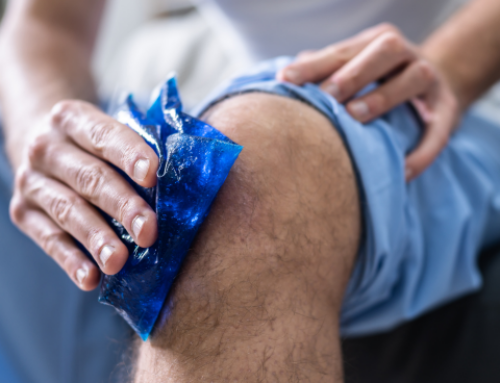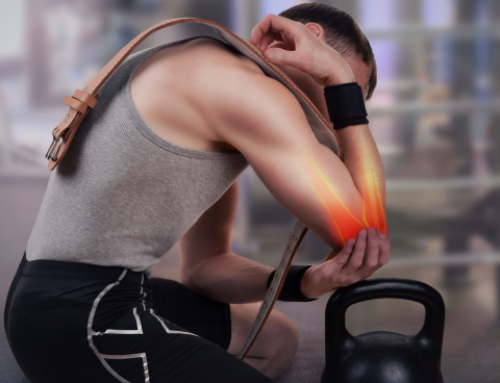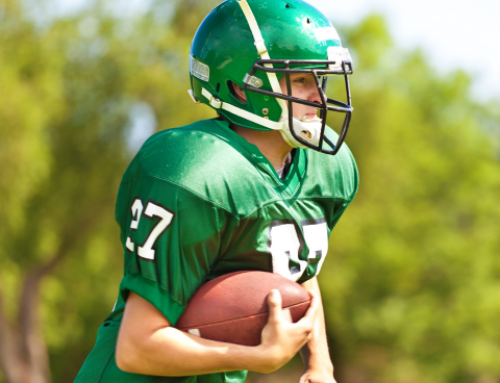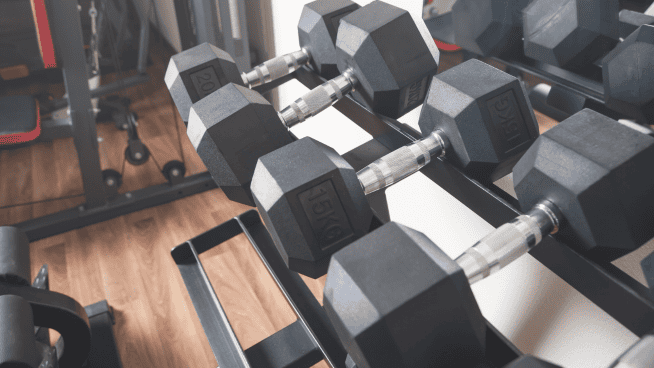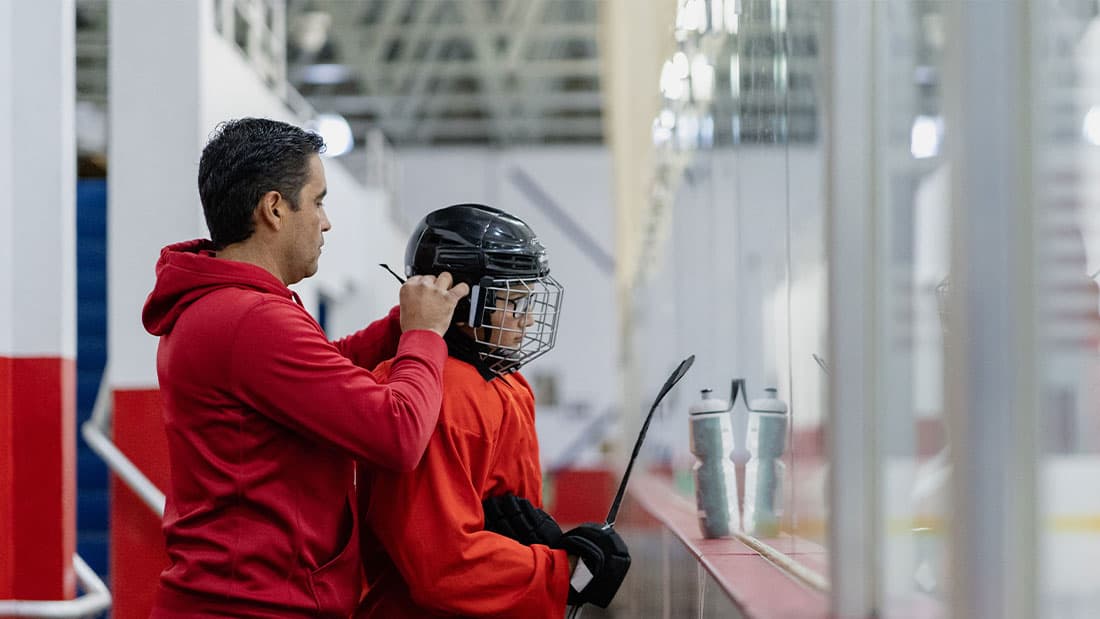How To Help Your Athlete Deal with a Sports Injury
Kids will be kids and get injured in their sport. It is inevitable. Now enters a different phase or part of the sport rarely seen and experienced as a child and parent. What do you do? How do you help your child understand their injury, and how do you help them cope? Here are some tips that will help you help your child to get back up and running.
Learn Relaxation Skills
Let your child know, just like they play hard, they need to rest hard too. The time and effort they put into physical practice should go into recovering as well. The more they rest, the better and faster they will recover and perform much better on the field. So, encourage them to take it as easy as they can. If your child is trying to train or do things around the injury, the injury will heal slowly. The more energy the body can dedicate to healing, the faster the injury will recover.
The Other Side of Sportsmanship
Even though your child may be out of the game, have them attend the games to show them a different side of sportsmanship. Supporting their team and teammates is just as important as playing in the game to maintain the connective energy of the team. This will make your child feel good and understand how support works on a different level.
When I suffered a minor injury as a child, I could not play baseball for some weeks. My parents had me suit up and go to the game. When the coach saw me sitting back watching the game, he told me to sit on the bench with the players. You can also have your child go to the practices and do the same. Being at the practice can show your child’s support for the team. At the same time, your child can train their brain watching the practices too, instead of a TV show, using visual sport imagery. Keeping them involved will also help them feel positive and motivated to rest and return to play.
Do Mental Imagery Techniques
Have your child work on the mental imagery skills of their game. Have them play the game in their mind. This maintains the mind-body connection. It uses sensory information from previous practices and games without direct physical stimulation. This will help significantly keep their reactionary skills, preparedness and improve their return to play. There is a lot of successful research based on mental image training. The imagination brings all the feelings, emotions, and positivity to the imagery.
Play Sports Video Games
Believe it or not, as addictive as video games are, there is a positive note for athletes. It improves and boosts their brain activity. Have your kids play a sports video game. How they play on the field is how they will play in the game. This will help train, enhance, and maintain their reaction skills and maintain their competitiveness and decision-making ability used on the field.
Find a Sports Medicine Doctor
Make sure you find an experienced sports medicine doctor. A sports medicine doctor is highly trained in injury and sport. They have the latest and greatest info based on movement and contact injuries. They have seen thousands of strains, sprains, and injuries, and usually know what type of recovery and rehab works the best.
Stay Positive
Most importantly, keep your child positive. Being injured and away from something they are passionate about and love to play will lead to depression and frustration. You want to prevent this from happening because it can ramify into other parts of life. So, try to use the techniques above to keep their spirits up.
Kids are natural athletes. They love to run and play no matter what. However, sports take all that unharnessed energy and harness it into qualities and skills; making sports a passion for them. Passion runs deep, so you must make your child understand all aspects of the sport- from training mentally and physically to the other side of injury and recovery. When they are injured and cannot play, they need to understand that it is a part of the process, although not experienced often. As a parent, you must teach them how to recover from injury and know that recovering from an injury takes practice and training.
Read More
RECOMMENDED FOR YOU
MOST POPULAR
How To Help Your Athlete Deal with a Sports Injury
Kids will be kids and get injured in their sport. It is inevitable. Now enters a different phase or part of the sport rarely seen and experienced as a child and parent. What do you do? How do you help your child understand their injury, and how do you help them cope? Here are some tips that will help you help your child to get back up and running.
Learn Relaxation Skills
Let your child know, just like they play hard, they need to rest hard too. The time and effort they put into physical practice should go into recovering as well. The more they rest, the better and faster they will recover and perform much better on the field. So, encourage them to take it as easy as they can. If your child is trying to train or do things around the injury, the injury will heal slowly. The more energy the body can dedicate to healing, the faster the injury will recover.
The Other Side of Sportsmanship
Even though your child may be out of the game, have them attend the games to show them a different side of sportsmanship. Supporting their team and teammates is just as important as playing in the game to maintain the connective energy of the team. This will make your child feel good and understand how support works on a different level.
When I suffered a minor injury as a child, I could not play baseball for some weeks. My parents had me suit up and go to the game. When the coach saw me sitting back watching the game, he told me to sit on the bench with the players. You can also have your child go to the practices and do the same. Being at the practice can show your child’s support for the team. At the same time, your child can train their brain watching the practices too, instead of a TV show, using visual sport imagery. Keeping them involved will also help them feel positive and motivated to rest and return to play.
Do Mental Imagery Techniques
Have your child work on the mental imagery skills of their game. Have them play the game in their mind. This maintains the mind-body connection. It uses sensory information from previous practices and games without direct physical stimulation. This will help significantly keep their reactionary skills, preparedness and improve their return to play. There is a lot of successful research based on mental image training. The imagination brings all the feelings, emotions, and positivity to the imagery.
Play Sports Video Games
Believe it or not, as addictive as video games are, there is a positive note for athletes. It improves and boosts their brain activity. Have your kids play a sports video game. How they play on the field is how they will play in the game. This will help train, enhance, and maintain their reaction skills and maintain their competitiveness and decision-making ability used on the field.
Find a Sports Medicine Doctor
Make sure you find an experienced sports medicine doctor. A sports medicine doctor is highly trained in injury and sport. They have the latest and greatest info based on movement and contact injuries. They have seen thousands of strains, sprains, and injuries, and usually know what type of recovery and rehab works the best.
Stay Positive
Most importantly, keep your child positive. Being injured and away from something they are passionate about and love to play will lead to depression and frustration. You want to prevent this from happening because it can ramify into other parts of life. So, try to use the techniques above to keep their spirits up.
Kids are natural athletes. They love to run and play no matter what. However, sports take all that unharnessed energy and harness it into qualities and skills; making sports a passion for them. Passion runs deep, so you must make your child understand all aspects of the sport- from training mentally and physically to the other side of injury and recovery. When they are injured and cannot play, they need to understand that it is a part of the process, although not experienced often. As a parent, you must teach them how to recover from injury and know that recovering from an injury takes practice and training.
Read More

